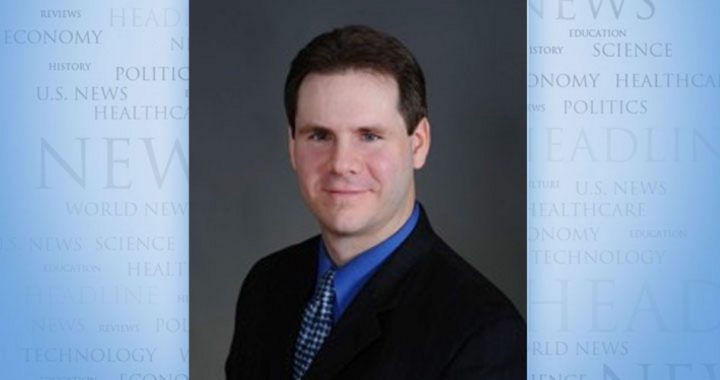
“I like Obama,” said a man I know of when explaining his support for the president. His sentiment isn’t unusual, as Barack Obama is, we’re told, a likeable man. In contrast, we hear that people have trouble “connecting” with Mitt Romney, that he’s an overly-starched blueblood who can’t relate to the common man.
Of course, it’s hard for people to connect with you when the only connection they have to what you say and do is through a media that hates you. In contrast, when that same media smoothes out your rough edges and whites out damning comments you make, it’s a lot easier to be likeable. This certainly is the case with Obama, a man who has called traditionalist Americans “enemies,” said that they “cling to guns or religion or antipathy to people who aren’t like them…,” and considered his brief time in the corporate world as a case of “working for the enemy” (he seems to have a very unlikeable habit of viewing fellow Americans as “enemies”). And based on what I’ve heard through the grapevine, the real Obama exudes an arrogance that’s anything but appealing.
Let’s say, however, that I’m wrong and Obama is just the most affable bloke around. Is this really meaningful? Could it even be a red flag?
This matter of likeability brings to mind two fellows I knew at a former workplace. One of them could be charming and I truly did, and still do, like him; the other was a crusty old WWII veteran who never cracked a smile and could be a bit gruff. But a different picture of them emerged when you scratched the surface: The charmer was dishonest and Machiavellian while the old curmudgeon was a stand-up fellow you could trust.
So how could I like the charmer? It’s simple: What we “like” is a function of emotion or taste, something unconstrained by logic. We may like ice cream more than vegetables or cigarettes more than exercise, but this doesn’t mean they’re better choices. And this is where our heads should overrule our hearts and stop us from eating or smoking ourselves to death in deference to our likes. Similarly, I never would have chosen the charmer over the curmudgeon if they both ran for office, as there’s a difference between likability and goodness. Sadly, though, my vote would no doubt have placed me in the minority.
In reality, the most likeable people are seldom the most virtuous, and there are two reasons for this. One is that since great likeability and great virtue are rare qualities, it’s seldom the case that both are found in the same person. The second reason, however, is this: Likeability can be artifice. As Thomas Sowell recently wrote, “Have you ever heard of a grumpy confidence man? Geniality is a prerequisite for the job.”
A wise person knows that extreme likeability — especially in a person who wants something from you — can be a red flag. For an honest, sincere person will sometimes tell you things you don’t want to hear; he’ll sometimes be grumpy and let it show. And if he gets by on anything, it’s virtue. But the con man isn’t selling virtue; the only way he can get by (or get over) is with a pleasing façade, which will be maintained at least until the point he no longer needs you. In certain cases, this point is the next election.
Another rare quality seldom found in combination with extreme likeability is true competence (for which some virtue is a prerequisite). For example, how likeable do you think General George Patton, Thomas Edison, and Steve Jobs were? For sure, while these men had some bad personality traits, among them was not that of being a phony charmer. Speaking of which, I wrote a poem on this subject many years ago. I’ll reprint it here:
The tyrant threw tantrums, but effective not was he.
Too diminutive he was, just nigh to a knee.
He grew and learned of graces, gentle persuasion and guile,
Smooth talk, sartorial splendor, and a twinkling smile.
Change had come upon him, so a tyrant he was no more,
He was a man among men, a charmer one could adore.
Taken people were with his words and noble bearing,
His earnestness, his charity, how he’d always be so caring.
His politeness was unfailing, and what he did find,
Is t’was his shield of armor, making others respond in kind.
They made the Charmer a leader of men, and as he rose through the ranks,
He abided by protocol and niceties, never failing to say “thanks.”
Finally he sat at the helm of his great nation,
His charm and others’ omission having won him his great station.
But even this lofty status satisfied not what lay beneath,
The Charmer wanted his birthright; it was time to bare his teeth.
Success was not denied him, and as he sat in the seat of power,
Absolute control was in his hands, and his greatest gift came to flower.
No more to pay homage to the traditions of men,
His will could be imposed with a stroke of his pen.
T’was then those who loved the Charmer could only gnash their teeth and cry,
As they were marched to lonely fields and camps, so soon they were to die.
Dumbfounded they were, not knowing what they did sow.
“What happened to the Charmer?” was all they wanted to know.
They pined after their great leader, whom they held so dear,
And wondered, in disbelief, “How could this happen here?”
And uttering their last, as the executioner stood ready to wrack,
They exclaimed, “Our beloved Charmer has been deposed, and the tyrant has come back!”
Many years ago, a very famous man said about a very infamous man, “I’m glad I never met him, because he might have charmed me also.” That man of fame was Winston Churchill. And he was talking about Adolf Hitler, who was known for being exceedingly charming in person.
Unfortunately, what most people can see in others in real time is only a façade; what’s beneath it only becomes apparent in good time.


